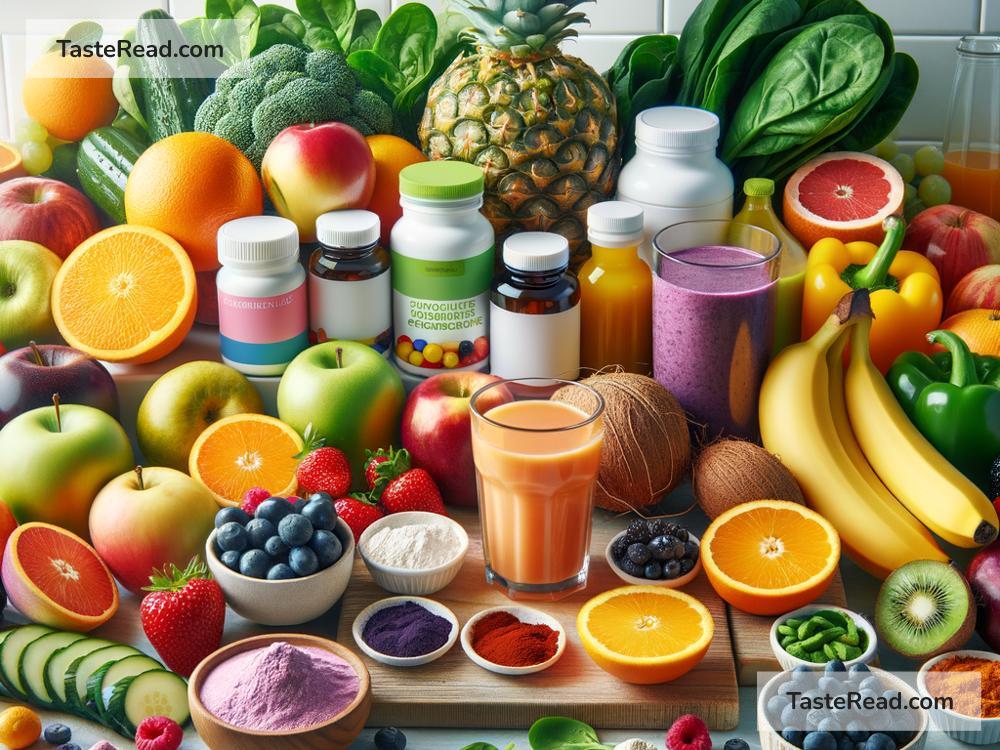How to Incorporate More Antioxidant Supplements Into Your Diet
Antioxidants are buzz-worthy, and for good reason—they help protect your cells from damage, support your immune system, and even slow down signs of aging. If you’re looking to make your diet healthier, adding more antioxidant-rich foods or supplements is a great way to start. Don’t be intimidated by the science behind antioxidants—they’re easier to fit into your daily routine than you might think! In this article, we’ll explain how you can incorporate more antioxidant supplements into your diet in simple terms.
What Are Antioxidants and Why Do You Need Them?
To put it simply, antioxidants are like little protectors for your body. Every day, your cells are exposed to harmful molecules called free radicals. Free radicals can come from pollution, stress, smoking, unhealthy foods, and even just living your daily life. Over time, too many free radicals can damage your cells, cause inflammation, and lead to chronic diseases like cancer, heart disease, or diabetes.
Antioxidants work by neutralizing these free radicals, keeping your cells safe and your body functioning at its best. You’ve probably heard about popular antioxidants like Vitamin C, Vitamin E, beta-carotene, and selenium—they’re like heroes working hard inside your body.
Why Choose Supplements?
While eating fresh antioxidant-rich foods like fruits, vegetables, nuts, and seeds is always the best choice, many people have busy schedules or dietary restrictions that make it hard to pack all the nutrients into meals. This is where antioxidant supplements come in handy. They’re convenient, easy to use, and can give your body the extra boost it needs if your diet isn’t enough.
Start With a Basic Plan
If you’re new to using supplements, don’t worry—you don’t need a complicated routine. Here’s a simple plan to follow:
-
Check With Your Doctor or Nutritionist: Before starting any supplements, talk to a healthcare professional. They can help you understand what your body needs and ensure it’s safe for you to take supplements alongside any medications or health conditions.
-
Choose Multi-Vitamins or Combination Products: A multivitamin with antioxidants can be a great place to start. Many multivitamins include Vitamin C, Vitamin E, selenium, and other antioxidants—all in one capsule or tablet.
-
Start Small: Take a single supplement at first and see how it affects your body. Once you feel comfortable, you can add more specialized options depending on your health goals.
Best Supplements for Antioxidants
Here are some popular antioxidant supplements to consider:
-
Vitamin C: Known for boosting immunity, Vitamin C is widely available as a supplement. It helps neutralize free radicals and supports healthy skin. Try tablets, chewables, or powders—you might even find it in tasty gummy form!
-
Vitamin E: This antioxidant helps protect your skin and body from oxidative stress. It’s often included in skin-care products, but taking it as a supplement can benefit your overall health.
-
Coenzyme Q10 (CoQ10): Your body naturally produces CoQ10, but levels decline as you age. Supplements can help boost energy and protect heart health.
-
Resveratrol: Found in grapes and certain berries, resveratrol has powerful anti-aging properties. It’s available in capsule or powder form.
-
Selenium: This mineral helps your body work efficiently and reduce inflammation. A little goes a long way, so look for supplements with safe levels of selenium.
-
Green Tea Extract: Packed with catechins, green tea is a great antioxidant source. Green tea supplements offer the same benefits without requiring you to drink multiple cups per day.
-
Curcumin (Turmeric): The active compound in turmeric, curcumin is a strong antioxidant with anti-inflammatory benefits.
-
Astaxanthin: Derived from algae, astaxanthin is an antioxidant often hailed for its ability to support skin, joint, and eye health.
How to Incorporate Antioxidants Into Your Routine
Adding supplements to your diet doesn’t have to be tricky. Try these tips to make it easy:
-
Pair Them With Meals: To help your body absorb antioxidant supplements properly, take them with food. Some, like Vitamin E, need healthy fats (like avocado or olive oil) for absorption.
-
Keep It Handy: Store your supplements somewhere convenient, like on your kitchen counter or in your purse. Seeing them will remind you to take them!
-
Don’t Overload: More isn’t always better! Stick to the recommended dose listed on the product or provided by your doctor. Too much of some antioxidants can actually be harmful.
-
Experiment With Formats: Capsules aren’t the only option. You can find antioxidant supplements in powders, gummies, or even liquids. Try a few formats to figure out what works best for you.
Don’t Forget Whole Foods
While supplements are helpful, don’t rely on them entirely. Whole foods like colorful fruits (blueberries, oranges, pomegranates), leafy greens (spinach, kale), nuts (almonds, walnuts), and seeds (chia, flax) are packed with antioxidants and important nutrients your body needs. Aim to include these foods in your meals as often as possible.
Conclusion
Adding antioxidant supplements to your diet is a simple way to support your health and protect your body from everyday damage. Start small, pick the right supplements for your needs, and pair them with a balanced diet full of colorful, fresh foods. With a little effort, you’ll be giving your body the tools it needs to thrive. Here’s to a healthier you!


